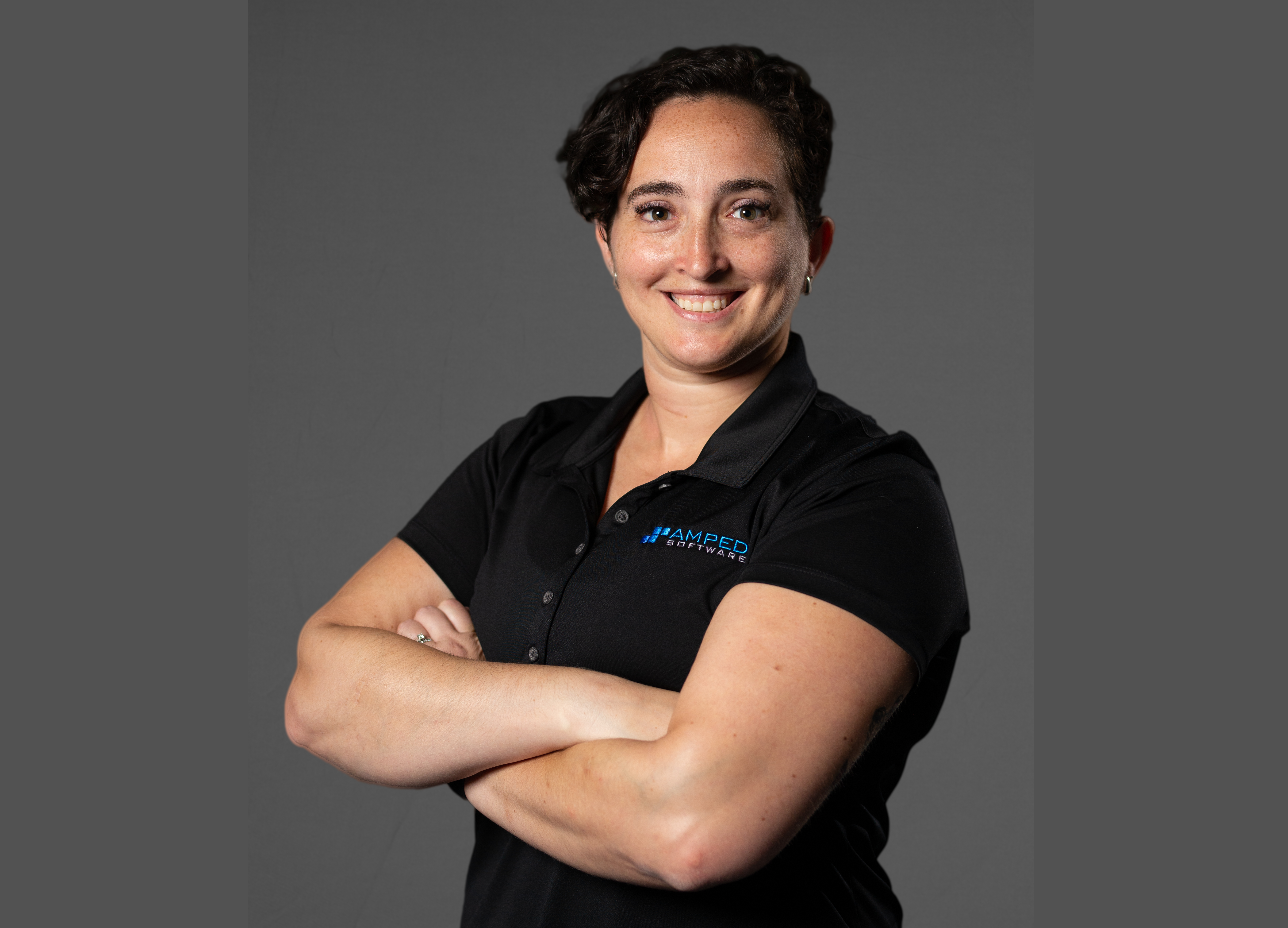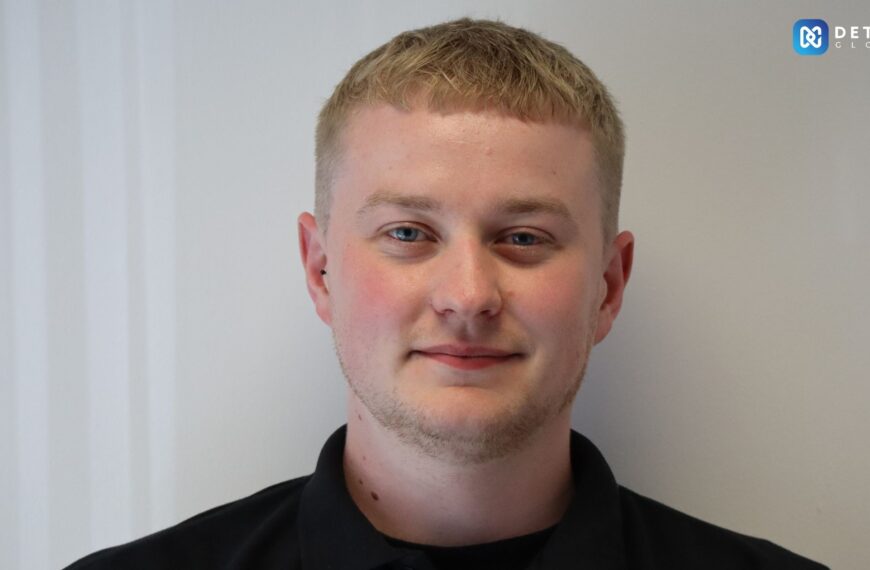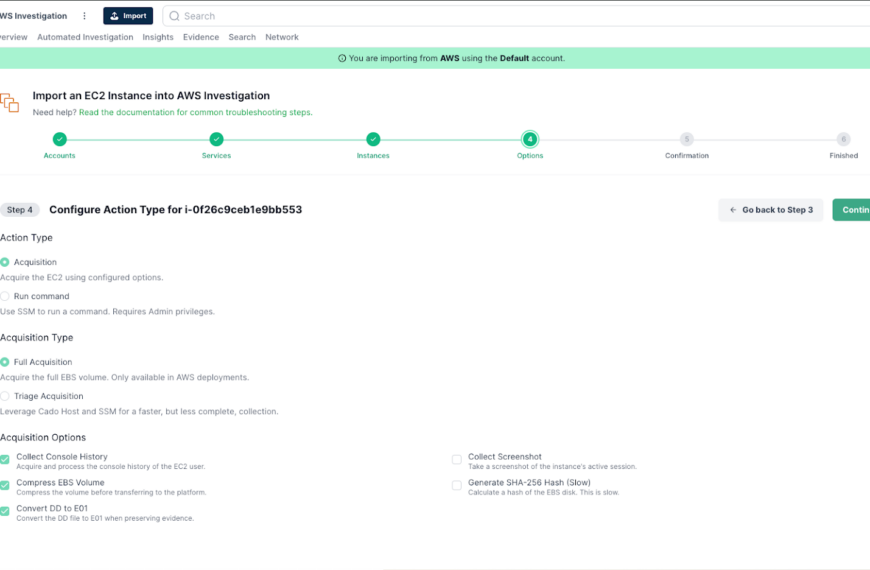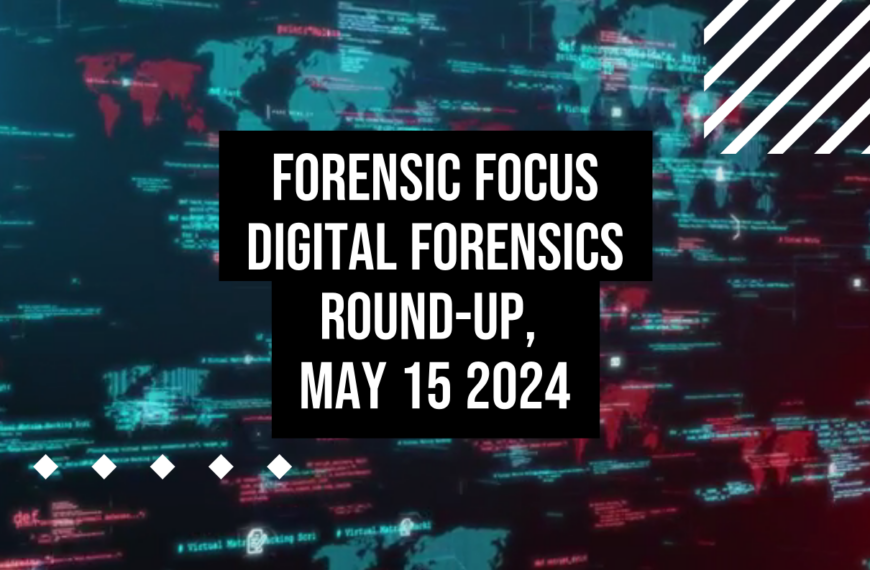Melissa Kimbrell is Trainer and Technical Support Specialist at Amped Software.
Before you joined Amped Software, you worked as a forensic scientist at the Texas Department of Public Safety. Can you tell us a bit about this role and how you ended up in it?
I went to school for Biomedical and Forensic Photography, so I was hired by the Texas DPS Crime Laboratory as a Forensic Photographer. Within that position, in addition to laboratory photography, crime scene documentation, as well as event and studio photography, I was also tasked with Audio and Video Enhancement. I had a broad range of duties there! A few years into my time as a Forensic Photographer, I was reclassified as a Forensic Scientist and moved under the Digital Multimedia Evidence section as an Audio/Video Examiner. I kept a lot of my photography duties, but as our audio and video caseload increased, my photography responsibilities decreased. My favorite part of my job was being able to help people. I was a very small cog in a much larger machine, but my small part was making a difference! I worked in this position for nine years.
What led you to your current role as a Trainer and Technical Support Specialist at Amped Software?
I have been friends with Blake Sawyer for many years since we attended a few introductory forensic video analysis courses together. My department started using Amped FIVE in 2015 after I heard about it at a LEVA class. It quickly became my favorite of all the tools we used in the Texas DPS Crime Laboratory.
Blake, now Director of U.S. Operations for Amped Software USA, Inc., was looking to expand his team and he invited me to apply for a position. Through many conversations with Blake and Martino Jerian, I fell in love with the company and its mission, and I was so happy to be offered a position where I can continue to help people, albeit in a different way. As an examiner, I was receiving a case, performing the analysis, returning my results and reports to the investigators, then possibly testifying in criminal court as to the work that I did. As a trainer and technical support specialist, I help countless examiners in the field perform these same duties. I help examiners feel knowledgeable and confident in their ability to be their own cog in their agency’s forensic machine.
What does a typical day at work look like for you?
I feel like I don’t have any typical days anymore! Every day feels a little bit different. Many mornings throughout the week start with meetings, whether it be with other trainers like myself, or developers who are working behind the scenes. Since a large majority of Amped employees are in Europe (six or seven hours ahead of me in the Central US time zone), a lot of company business occurs before I even get out of bed. After the meetings release, I like to start by catching up on any emails or company discussions that happened while I was sleeping. My next goal is to see if any users have requested support. I never want our users to be interrupted in their case flow if I can avoid it, so this is a high priority for me. Sometimes I’ll be asked questions about the software, specific filters, or video theory. Other times users have encountered proprietary video formats that are new to us. A large part of my job is liaising between the users and the development team about features and formats. Aside from the technical support side of my job, I spend a lot of time training, preparing for training, researching, and creating slide decks to present at conferences about different topics within the forensic video field.
Who uses the software Amped develops and what sorts of investigations is it used in?
We have a really wide range of users! A large majority work for government entities. For example, patrol officers, homicide detectives, crime scene investigators, accident reconstructionists, District Attorneys, fraud investigators, or any other worker whose job involves visual data. The private sector comprises the remainder of our users. These could include insurance company investigators, private law firms, private investigators, engineering firms, and private forensic practitioners. We also have many users who are educators or researchers in academia. Amped Software programs can be used in all kinds of investigations from homicides to theft, arson to fraud, crash investigations to official oppression. If it was caught on camera, we can assist with it.
What advice would you give to someone looking to start a career in digital forensics, whether that be in law enforcement or software development?
I’d suggest attending some educational or scientific conferences that offer a wide variety of digital forensic lectures. Sometimes these events may only be accessible to individuals currently employed in a specific field, while at other times they are open to anyone interested in learning or breaking into the industry.
What trends do you see in digital forensics? How do you see the industry evolving?
Digital Forensics keeps getting more and more advanced. We are learning more about how things are programmed and how to properly decode that information. When we look back to the very beginnings of digital media and how drastically our technology has improved, it is almost scary to think where we will be in the next 10-15 years.
What education or training would you recommend to aspiring digital forensic professionals?
I’d highly recommend students take some computer science courses. It’s something I never did, and I regret it all the time. I’m constantly learning and reading and researching, but I always wish I had that base knowledge from when my younger, more capable brain could take it in. Additionally, there are more and more media forensics courses and programs popping up in different colleges and universities. It’s amazing to witness such an increase in interest and understanding in this industry. Amped Software has hired more trainers and scheduled more training sessions, both online and in person, to keep up with the demand of examiners wanting to learn how to use our software tools.
Which industry conferences or events do you attend? How important is it to meet others in the same field?
Amped Software as a company attends many, many conferences and trade shows every year. I personally tend to go to educational conferences which offer the opportunity for me to speak and attend lectures, workshops, and talks about image and video forensics. Some of the conferences I have attended and presented at include the Law Enforcement & Emergency Services Video Association (LEVA) Educational Symposium, the International Association for Identification (IAI) Educational Conference, Techno Security & Digital Forensics Conference, and the National Cyber Crime Conference. I am also a member of the Video and Imaging Technology and Analysis (VITAL) subcommittee of the Digital Multimedia Scientific Area Committee through the National Institute of Standards and Technology (NIST). This group works to develop standard protocols, minimum requirements, and best practices for different scientific disciplines.
I think staying connected with others in our field helps keep us relevant. Without our users requesting features and formats from us, we would never know those things were out there.
What do you enjoy most about your current and previous roles in digital forensics?
My favorite part has always been helping people. When I was performing the work as a forensic examiner myself, I felt like I was helping in the pursuit of justice for each and every case I was involved with. Though I’m in a different role now, my guidance and training help others to be able to perform those duties. In a way, I feel like I’m helping exponentially more people by spreading foundational knowledge about proper forensic video processing techniques.
What would you say are some of the key challenges digital forensic professionals typically encounter?
I think we are at a time in our lives when we are surrounded by digital devices. Many of us have at least one attached to our body at any given time. There is a sort of complacency that comes with technological comfort that we have to overcome with some intentionality. Forensic examination of videos, cell phones, vehicle telematics systems, etc. should be handled with the utmost care by trained and educated professionals. A lot of people are of the belief that because they have a smartphone or because they have a video doorbell at their house, they’re equipped enough to understand the nuts and bolts of how these things should be examined. One of our biggest challenges in this industry is to make sure our examiners have access to the training and education necessary to perform their duties accurately and scientifically. Amped Software encourages its employees to function as lecturers, trainers, colleagues, and mentors to others in the industry. We strive to share knowledge so that image and video evidence can be processed in a forensically sound way.
One of our biggest challenges moving into the future will be the increase of Artificial Intelligence in the digital world. There has been a huge explosion of interest in AI computing in the last five years because computer processors are more powerful than they’ve ever been. We always say that digital forensics is a bit of a cat-and-mouse game: as we get smarter and more capable, counter-forensics entities continue to evolve and create new challenges.
Finally, when you’re not at work, how do you spend your spare time?
I love reading, puzzles of all kinds, my dogs, crafting, cooking, and traveling! Texas is hot, so we like to do our best to get out of the heat whenever we can.
If you’d like to connect with Melissa, you can find her on LinkedIn (login required).















